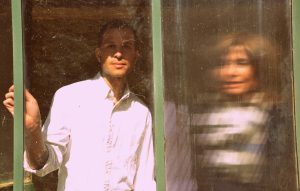 A mom wrote to me: I tried everything humanly possible to save my son. And then I let go. I have so much love and gratitude for the peace I am now experiencing. I have no illusions for tomorrow. I went to three funerals of young people in ten days.
A mom wrote to me: I tried everything humanly possible to save my son. And then I let go. I have so much love and gratitude for the peace I am now experiencing. I have no illusions for tomorrow. I went to three funerals of young people in ten days.
My reflection: I, too, tried countless ways to stop my son’s addiction. I dragged him to therapists, forced him into treatment centers, paid his bills, and tracked him down whenever he couldn’t be found. After fourteen years of attempting to control my son’s disease, I was forced to surrender.
Today’s Promise to consider: When I finally acknowledged that the power to stop my son’s addiction was outside my control, I was able to let go with love. As sobering as it was to admit my powerlessness, it was crucial for me to realize that no matter how much of myself I poured into his illness, the choice to stop was his alone.

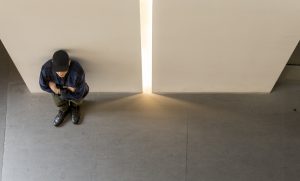 A dad wrote to me: I am so tired of the lies and the constant drama that our family has had to deal with. We parents care so much for our children that it’s really difficult to watch them self-destruct. I’m getting much better at realizing that I am in control of just one person: myself. I think prayer is the only answer.
A dad wrote to me: I am so tired of the lies and the constant drama that our family has had to deal with. We parents care so much for our children that it’s really difficult to watch them self-destruct. I’m getting much better at realizing that I am in control of just one person: myself. I think prayer is the only answer.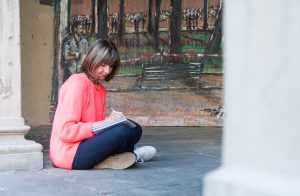 There are similarities between addiction and this pandemic. I find myself struggling with the familiar feelings of uncertainty and fear, so I talked with a friend about it. After the phone call, she wrote and gave me sensible advice, “Maybe it would be good if you took some time for yourself. Try and read a book to soothe your soul, cook, bake, meditate, or listen to music. Do whatever you can do to take care of yourself. Remember Loving-Kindness goes both ways – to others and to ourselves.”
There are similarities between addiction and this pandemic. I find myself struggling with the familiar feelings of uncertainty and fear, so I talked with a friend about it. After the phone call, she wrote and gave me sensible advice, “Maybe it would be good if you took some time for yourself. Try and read a book to soothe your soul, cook, bake, meditate, or listen to music. Do whatever you can do to take care of yourself. Remember Loving-Kindness goes both ways – to others and to ourselves.” A mother wrote to me: My son is still on the revolving road to recovery. He has been in detox three times, rehab (both inpatient and outpatient), in a sober house, involved in AA with a sponsor, and is presently trying the suboxone route with individual counseling. My heart is broken, but I will find my courage.
A mother wrote to me: My son is still on the revolving road to recovery. He has been in detox three times, rehab (both inpatient and outpatient), in a sober house, involved in AA with a sponsor, and is presently trying the suboxone route with individual counseling. My heart is broken, but I will find my courage. A mom wrote to me: I know we are not alone, but I hate answering questions about my children. In fact, I avoided a gathering at my mother’s house with some dear neighborhood friends because I didn’t want to be asked how my sons were doing and have to pretend all is well. My dad has passed and his dearest friend asked me how I was doing with my boys. I answered honestly, “Not the best.” He replied with kindness, “I’m sorry. I see you are struggling.” He understood and didn’t judge me. I am blessed to have shared a few minutes with him.
A mom wrote to me: I know we are not alone, but I hate answering questions about my children. In fact, I avoided a gathering at my mother’s house with some dear neighborhood friends because I didn’t want to be asked how my sons were doing and have to pretend all is well. My dad has passed and his dearest friend asked me how I was doing with my boys. I answered honestly, “Not the best.” He replied with kindness, “I’m sorry. I see you are struggling.” He understood and didn’t judge me. I am blessed to have shared a few minutes with him.
 I once called our beloved Dr. MacAfee, my son’s addiction therapist, to talk about suffering: During the fourteen years of my son’s addiction, I suffered, as we all do when we see our child destroy himself and his life. At that time, I received an email from a mom in which she wrote, “You need to quit complaining about your suffering. You need to learn from it.” Although I understood the concept of learning from pain, I also felt confused and hurt. Was I not ‘allowed’ to talk about or feel the constant heartache? I needed help putting things together.
I once called our beloved Dr. MacAfee, my son’s addiction therapist, to talk about suffering: During the fourteen years of my son’s addiction, I suffered, as we all do when we see our child destroy himself and his life. At that time, I received an email from a mom in which she wrote, “You need to quit complaining about your suffering. You need to learn from it.” Although I understood the concept of learning from pain, I also felt confused and hurt. Was I not ‘allowed’ to talk about or feel the constant heartache? I needed help putting things together. 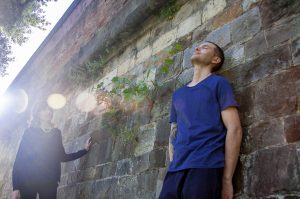 A dad wrote to me: Our children have to fight their addictions and win. We, as parents, will never know how hard their battles are or understand the strength they need. I think that anyone who has battled through addiction deserves a lot of credit.
A dad wrote to me: Our children have to fight their addictions and win. We, as parents, will never know how hard their battles are or understand the strength they need. I think that anyone who has battled through addiction deserves a lot of credit.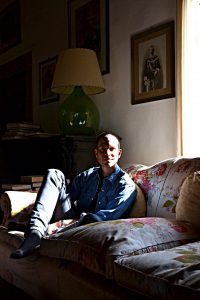 A mother wrote to me: When I awake every morning and go to sleep every night I feel God’s presence in my life and the life of my child. My son is good today, but I know it’s one day at a time. Dealing with addiction takes courage, humility, and gratitude: Courage to stay close and to love our child; humility to remember that the addiction is strong and can come back at any time, especially when we least expect it; and gratitude for our daily blessings.
A mother wrote to me: When I awake every morning and go to sleep every night I feel God’s presence in my life and the life of my child. My son is good today, but I know it’s one day at a time. Dealing with addiction takes courage, humility, and gratitude: Courage to stay close and to love our child; humility to remember that the addiction is strong and can come back at any time, especially when we least expect it; and gratitude for our daily blessings.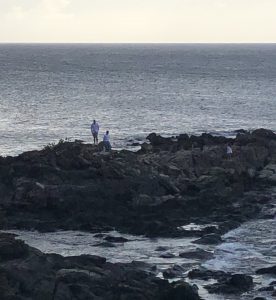 Henri Nouwen, priest, professor, and author of 39 books of the spiritual life, teaches that the great challenge in life is living through your wounds instead of thinking through them. For example, it’s better to cry than to worry, and it’s better to feel your wounds deeply than to intellectualize them. It is in our heart where we discover they will not destroy us.
Henri Nouwen, priest, professor, and author of 39 books of the spiritual life, teaches that the great challenge in life is living through your wounds instead of thinking through them. For example, it’s better to cry than to worry, and it’s better to feel your wounds deeply than to intellectualize them. It is in our heart where we discover they will not destroy us.
12 Comments.
View Comments | Leave a Comment